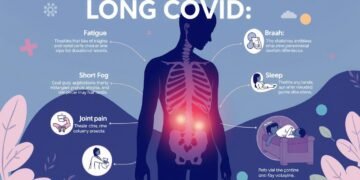Achieving weight loss can be challenging, even with a healthy diet and regular exercise. However, research suggests that quality sleep plays a crucial role in successful weight management. Despite its importance, many people overlook the connection between sleep and weight.

Approximately 35% of US adults get fewer than 7 hours of sleep per night, which is considered short sleep. This sleep deprivation can sabotage weight loss efforts. Understanding the link between sleep and weight connection can help individuals optimize their journey to lose weight.
This article will explore how sleep affects weight regulation and provide actionable strategies to improve sleep quality for better weight management.
Key Takeaways
- Quality sleep is crucial for successful weight loss efforts.
- Sleep deprivation can hinder weight loss despite a healthy diet and exercise.
- A significant portion of US adults experience short sleep.
- Understanding the sleep-weight connection can aid in weight loss.
- Improving sleep quality can enhance weight management.
The Sleep and Weight Connection: An Overview
Research has unveiled a compelling link between sleep patterns and the ability to lose weight. Understanding this connection is crucial for developing effective weight loss strategies.
What Research Reveals About Sleep Duration and Body Weight
Studies have shown a significant correlation between sleep duration and body weight. One analysis of 20 studies including 300,000 people found a 41% increased obesity risk among adults who slept fewer than 7 hours per night. In contrast, sleep was not a factor in the development of obesity in adults who slept longer (7-9 hours per night). This data suggests that adequate sleep is essential for maintaining a healthy weight.
| Sleep Duration | Obesity Risk |
|---|---|
| Fewer than 7 hours | 41% increased risk |
| 7-9 hours | No increased risk |
Why Sleep Matters for Your Weight Loss Journey
Sleep is not just a passive state; it’s an active period during which the body performs essential functions related to weight regulation. Adequate sleep affects multiple physiological systems that regulate weight, including metabolism, hormone production, and appetite control. Without proper sleep, even the most disciplined diet and exercise routines may not yield desired results. Understanding the sleep-weight connection can help people make more informed lifestyle choices.
- Sleep quality is crucial for weight management, as it influences hunger hormones and metabolism.
- Improving sleep quality and duration can be a relatively simple way to enhance weight loss efforts.
- Sleep should be considered the third pillar of weight management alongside diet and exercise.
By prioritizing sleep and understanding its impact on weight, individuals can adopt a more holistic approach to weight loss. This involves not just dietary changes and exercise but also ensuring adequate rest.
How Sleep Deprivation Affects Your Waistline
The consequences of sleep deprivation extend beyond fatigue, influencing our waistlines in profound ways. When we don’t get enough sleep, our bodies undergo various changes that can affect our weight.
Short Sleep Duration and Increased BMI
Research has shown that short sleep duration is significantly associated with greater waist circumference, an indicator of belly fat accumulation. Studies have found that individuals who get less sleep tend to have a higher Body Mass Index (BMI). This correlation suggests that sleep deprivation may contribute to weight gain and potentially lead to obesity.
The Vicious Cycle: Poor Sleep Leads to Weight Gain
A self-perpetuating cycle develops between poor sleep and weight gain. Initial sleep deprivation leads to weight gain, which can further disrupt sleep quality. Excess weight can contribute to sleep disorders like sleep apnea, creating a negative feedback loop. This cycle can be challenging to break without addressing both sleep quality and weight management simultaneously.
- The cycle begins with sleep deprivation, leading to changes in physiological processes.
- Weight gain follows, which can further disrupt sleep patterns.
- Excess weight contributes to sleep disorders, reinforcing the cycle.
- Breaking this cycle requires a multi-faceted approach that improves both sleep habits and weight management practices.
The Hunger Hormone Connection
The balance of hunger hormones is a critical aspect of weight management, and sleep duration plays a significant role in maintaining this balance. When we don’t get enough sleep, it can disrupt the delicate balance between hormones that stimulate and suppress appetite.
Ghrelin: How Sleep Affects Your Hunger Signals
Ghrelin is often referred to as the “hunger hormone” because it stimulates appetite. Sleep deprivation has been shown to increase levels of ghrelin, making us feel hungrier. Research indicates that even a single night of poor sleep can lead to an increase in ghrelin levels, potentially resulting in overeating. When ghrelin levels are high, we’re more likely to crave high-calorie foods, further complicating weight loss efforts.
Leptin: Sleep’s Impact on Feeling Full
Leptin, on the other hand, is the body’s primary satiety hormone, signaling fullness and helping regulate energy balance. Sleep deprivation reduces leptin production, diminishing the body’s ability to recognize when it’s had enough food. Studies have shown that even healthy individuals can experience a significant drop in leptin levels after just one night of poor sleep. The combination of increased ghrelin and decreased leptin creates a “perfect storm” for overeating. Restoring healthy sleep patterns can help normalize leptin levels, improving the body’s ability to regulate food intake.
Adequate sleep is crucial for proper leptin signaling, which is essential for effective appetite control. Leptin resistance, common in obesity, may be exacerbated by chronic sleep deprivation. By prioritizing sleep, individuals can better support their weight loss journey and overall health.
Sleep Deprivation and Increased Appetite
When we don’t get enough sleep, our bodies undergo various changes that can significantly affect our eating habits. Sleep deprivation has been linked to increased appetite, food cravings, and poor dietary choices.
Why You Eat More When You’re Tired
Sleep loss affects the balance of hunger hormones in our body, leading to increased levels of ghrelin, the “hunger hormone,” and decreased levels of leptin, the “fullness hormone.” This hormonal imbalance makes us feel hungrier and more inclined to eat more than we need.
Research has shown that sleep-deprived individuals tend to choose higher-calorie foods and consume larger portions. This is partly because sleep loss impairs the brain’s ability to recognize fullness cues, leading to continued eating past the point of satiety.
How Sleep Loss Affects Portion Control
Sleep deprivation not only increases our appetite but also affects our ability to control portion sizes. Studies have found that when we’re tired, our visual perception of portion sizes is altered, making it harder to judge appropriate amounts.
- Using smaller plates can help manage portion sizes when sleep-deprived.
- Pre-portioning foods before eating can also be an effective strategy.
- Being aware of the tendency to overeat when tired can help individuals implement conscious portion control.
By understanding how sleep loss impacts our eating habits, we can take steps to mitigate its effects and support our weight management goals.
| Effects of Sleep Deprivation | Impact on Eating Habits |
|---|---|
| Increased Ghrelin Levels | Increased Hunger |
| Decreased Leptin Levels | Reduced Feeling of Fullness |
| Impaired Brain Function | Poor Portion Control |
Poor Sleep and Food Choices
Research has shown that inadequate sleep can lead to poor food choices, hindering weight loss efforts. When you’re sleep-deprived, your brain’s ability to make healthy decisions is impaired, leading to a greater likelihood of choosing high-calorie, high-fat foods.
Why You Crave High-Calorie Foods When Sleep-Deprived
Sleep deprivation affects the brain’s reward processing system, making high-calorie foods more appealing. Studies have shown that when we’re tired, our brains release more dopamine in response to food stimuli, particularly for high-calorie options. This can lead to overeating and poor food choices, as our brains become more focused on seeking out rewarding foods.
Another study found that sleep-deprived individuals tend to crave more carbohydrates and sweets, which can be attributed to the brain’s increased desire for quick energy sources when it’s tired.
How Sleep Affects Your Brain’s Reward Centers
Functional MRI research has demonstrated that sleep deprivation alters the brain’s response to food images, with increased activation in reward centers. This heightened response makes food more salient and rewarding, while simultaneously reducing activity in brain regions responsible for self-control. Therefore, after a night of poor sleep, not only is that bowl of ice cream more rewarding, but you’ll likely have a harder time practicing self-control.
| Sleep Duration | Food Cravings | Brain Response |
|---|---|---|
| Adequate Sleep | Balanced food preferences | Normal reward center activity |
| Inadequate Sleep | Increased cravings for high-calorie foods | Heightened reward center activity |
Understanding the link between sleep and food choices can help you make better dietary decisions. By prioritizing adequate sleep, you can reduce the likelihood of making poor food choices and support your weight loss journey.
The Late-Night Snacking Problem
When you stay up late, you’re more likely to indulge in late-night snacking, which can hinder your weight loss efforts. This habit is not just about the extra calories; it’s also about how your body processes food at different times.

Why Staying Up Late Leads to Extra Calories
Staying up late often results in consuming additional calories, typically from snacking. Research indicates that late-night eating is associated with greater weight gain, higher BMI, and decreased fat oxidation, making weight loss more challenging. For instance, if you had dinner at 6:00 p.m. and stay up until 1:00 a.m., you’re likely to feel hungry between dinner and bedtime, leading to extra calorie intake.
Timing Matters: The Impact of When You Eat
The timing of your meals significantly affects your metabolism and weight management. The emerging science of chrononutrition highlights how the body’s circadian rhythms influence how food is processed at different times. Eating late at night conflicts with the body’s natural metabolic slowdown as it prepares for sleep. Studies have shown that identical meals consumed at different times of the day can have different metabolic effects.
| Meal Timing | Metabolic Effect | Impact on Weight |
|---|---|---|
| Eating in sync with circadian rhythms | Optimized metabolism | Supports weight management |
| Late-night eating | Decreased fat oxidation | Increased weight gain |
Aligning your eating patterns with your natural circadian rhythms can optimize weight management. Practical strategies include finishing dinner at least 2-3 hours before bedtime to support both better sleep and weight loss.
Sleep and Your Metabolism
Sleep plays a crucial role in metabolic function, affecting how we burn calories and store fat. Our metabolism is responsible for converting food into energy, and sleep deprivation can disrupt this delicate process.
How Sleep Affects Your Resting Metabolic Rate
The resting metabolic rate (RMR) is the number of calories your body burns while at rest. Research has shown that sleep deprivation does not significantly affect RMR, suggesting that the body’s energy expenditure at rest remains relatively stable despite lack of sleep. However, this does not mean that sleep has no impact on our metabolic health.
Sleep quality and duration are crucial for overall metabolic function. While RMR may not be directly affected by sleep loss, other metabolic processes are influenced by our sleep patterns.
Sleep’s Role in Fat Oxidation
Fat oxidation is the process by which the body breaks down fat cells to use as energy. Lack of sleep may suppress fat oxidation, making it more challenging to lose weight. One study found that sleep deprivation resulted in significantly lower basal fat oxidation in individuals across different ages, sexes, and body compositions.
- Fat oxidation is crucial for utilizing fat stores as energy.
- Sleep deprivation impairs the body’s ability to efficiently burn fat.
- Improving sleep quality can enhance fat-burning capacity.
When we don’t get enough sleep, our bodies may struggle to efficiently burn fat, even with the same calorie intake. This highlights the importance of adequate sleep for maintaining optimal metabolic health, particularly during weight loss efforts.
By prioritizing sleep and improving sleep quality, individuals can potentially enhance their body’s ability to utilize fat stores for energy, supporting their weight loss journey.
The Stress-Sleep-Weight Triangle
Understanding the stress-sleep-weight triangle is essential for developing effective weight loss strategies. The biological response to stress involves the activation of the HPA-axis, leading to the release of various hormones, including cortisol. Elevated cortisol levels over prolonged periods can negatively impact the immune system, attention, and memory, and increase the risk of psychological disorders like depression.
Cortisol’s Impact on Weight Gain
High cortisol concentrations can significantly affect weight by promoting fat storage around the abdominal area. This is because cortisol triggers the body to hold onto fat, particularly in response to stress. Moreover, cortisol can increase appetite and cravings for high-calorie foods, further contributing to weight gain.
| Effects of Cortisol | Impact on Weight |
|---|---|
| Increased Appetite | Higher calorie intake |
| Fat Storage | Abdominal fat accumulation |
| Cravings for High-Calorie Foods | Poor dietary choices |
Breaking the Stress-Sleep Cycle
To interrupt the negative cycle between stress and poor sleep, several strategies can be employed. Practicing mindfulness meditation, deep breathing, and progressive muscle relaxation can help manage stress levels. Establishing a consistent pre-sleep relaxation routine can signal the body to reduce cortisol production, promoting better quality sleep. Regular physical activity also helps reduce stress while improving sleep quality and supporting weight management.

By implementing these strategies and being mindful of the interplay between stress, sleep, and weight, individuals can break the cycle that hinders their weight loss efforts. Even small improvements in stress management can have positive effects on both sleep quality and weight management.
Sleep and Physical Activity
Adequate sleep is crucial for physical activity, influencing both motivation and performance. The intricate relationship between sleep and exercise is multifaceted, affecting various aspects of physical performance and overall health.
Exercise Motivation
Sleep quality significantly affects an individual’s motivation to engage in physical activity. When well-rested, people are more likely to have the energy and desire to exercise. Conversely, sleep deprivation can lead to decreased motivation, making it harder to stick to an exercise routine. Research has shown that adequate sleep enhances exercise motivation by improving mood and reducing fatigue.
Athletic Performance
Sleep’s impact on athletic performance is profound. Lack of sleep can negatively affect reaction time, fine motor skills, muscular power, endurance, and problem-solving skills. It can also increase the risk of injury and delay recovery. Adequate sleep, on the other hand, enhances muscle recovery and growth through optimal hormone production, including growth hormone. Studies have demonstrated that athletes who get sufficient sleep show improvements in performance, highlighting the importance of prioritizing sleep for optimal exercise results.
Prioritizing sleep is essential for maximizing the benefits of physical activity, whether for casual exercise or competitive athletics. By ensuring adequate sleep, individuals can improve their exercise motivation, enhance their athletic performance, and support their overall weight loss and health goals.
The Circadian Rhythm Factor
Our bodies operate on a delicate internal clock, known as the circadian rhythm, which influences various physiological processes. This internal clock regulates our sleep-wake cycle, hormone secretion, and metabolism, among other functions. When our circadian rhythm is disrupted, it can have significant effects on our overall health, particularly our weight management.
Disrupted Sleep Schedules and Metabolism
Disrupted sleep schedules can significantly affect our metabolism. Research has shown that irregular sleep patterns can lead to changes in hunger hormones, resulting in increased appetite and calorie intake. Moreover, disrupted circadian rhythms can affect the body’s ability to regulate blood sugar levels, further contributing to metabolic dysregulation.
- Changes in hunger hormones due to irregular sleep patterns
- Increased appetite and calorie intake
- Impact on blood sugar regulation
Night Shift Work and Weight Gain
Night shift work is a common example of a disrupted circadian rhythm. Studies have shown that night shift workers are at a higher risk of obesity and metabolic disorders. Working at night can lead to altered eating patterns, reduced physical activity, and disrupted hormone production, all of which contribute to weight gain.

To mitigate these effects, night shift workers can implement strategies such as strategic meal timing and light exposure management. Recognizing shift work as a risk factor for weight gain is crucial for implementing proactive prevention strategies.
Can Oversleeping Affect Weight?
The relationship between sleep duration and weight is complex, with both too little and too much sleep potentially affecting body weight. While most research focuses on the negative effects of sleep deprivation, oversleeping also has significant implications for weight management.
The U-Shaped Relationship Between Sleep Duration and Weight
Studies have shown a U-shaped curve relationship between sleep duration and body mass index (BMI), indicating that both short and long sleep durations are associated with higher BMI. This suggests that oversleeping, like sleep deprivation, may contribute to weight gain and potentially obesity. The exact mechanisms are not fully understood, but it’s thought that oversleeping may be linked to reduced physical activity, which can partially explain the weight gain.
Potential Risks of Sleeping Too Much
Oversleeping has been associated with various health risks, including increased risk of chronic diseases. Regularly sleeping more than 9 hours per night has been linked to a higher risk of diabetes, cardiovascular disease, and even mortality. Conditions like depression and sleep apnea can cause oversleeping and also affect weight. It’s crucial to distinguish between oversleeping due to poor sleep quality and truly excessive sleep needs.
Addressing the underlying causes of oversleeping is more important than simply reducing sleep time. This may involve treating underlying health conditions, improving sleep quality, and increasing physical activity levels.
How Much Sleep Do You Need for Weight Management?
The connection between sleep duration and weight loss is complex and highly individualized. While there’s a general guideline for sleep duration, individual sleep needs can vary significantly.
Optimal Sleep Duration for Adults
Research suggests that adults aged 18-60 years should aim for 7-9 hours of sleep per night, with an optimal average of 7.5 hours, to support overall health and weight management. Sleeping within this range can help regulate hunger hormones, support metabolism, and enhance overall physical and mental well-being.
| Age Group | Recommended Sleep Duration |
|---|---|
| 18-25 years | 7-9 hours |
| 26-60 years | 7-9 hours |
Individual Variations in Sleep Needs
While the general recommendation is 7-9 hours, individual sleep needs can vary based on factors such as age, activity level, genetics, and overall health. Some people are natural “short sleepers” who function well on less sleep, while others may require more than average. It’s essential to listen to your body’s signals rather than adhering to a predetermined sleep schedule.
To determine your optimal sleep duration, consider factors like daytime energy levels, cognitive function, and hunger levels. You can also try sleep tracking or conducting a “sleep experiment” during your vacation when you can sleep without alarms.

Strategies to Improve Sleep Quality for Weight Loss
Improving sleep quality is crucial for achieving weight loss goals. By implementing the right strategies, you can enhance your sleep and support your weight management efforts.
Creating a Sleep-Friendly Environment
Creating a sleep-friendly environment is essential for improving sleep quality. This involves making your bedroom a sanctuary for sleep. Start by ensuring your bedroom is dark, quiet, and at a comfortable temperature. Consider using blackout curtains, earplugs, or a white noise machine if necessary. Invest in a comfortable mattress and pillows to support a restful night’s sleep. Additionally, keep electronic devices out of the bedroom to minimize distractions and reduce exposure to blue light, which can interfere with your body’s production of melatonin, the sleep hormone.
Tonight, try to be in bed at least 30 minutes earlier than you usually are. If you’re not able to sleep, read a book or listen to a podcast instead of scrolling on your phone or watching TV.
Bedtime Routines That Support Weight Loss
Establishing a consistent bedtime routine can signal to your body that it’s time to sleep, supporting both sleep quality and weight management. Begin by setting a regular sleep schedule, going to bed and waking up at the same time every day, even on weekends. Engage in relaxing activities before bed, such as reading, meditation, or gentle yoga, to help wind down. Avoid screens and electronic devices at least an hour before bedtime to reduce blue light exposure and mental stimulation. Consider practicing gratitude or journaling before bed to reduce stress and anxiety.
| Bedtime Routine | Benefits for Sleep and Weight Loss |
|---|---|
| Dimming lights | Signals the body that it’s time for sleep, supporting melatonin production |
| Gentle yoga or stretching | Relaxes the body, reducing stress and promoting better sleep |
| Journaling or gratitude practice | Reduces stress and anxiety, promoting a restful night’s sleep |
| Avoiding screens before bed | Reduces blue light exposure, supporting melatonin production and improving sleep quality |
Diet and Exercise Habits That Promote Better Sleep
The relationship between diet, exercise, and sleep is complex, but research has identified specific habits that can improve sleep quality. A well-balanced diet and regular physical activity are essential components of a healthy lifestyle that can also promote better sleep.
Foods That Help You Sleep Better
Research by St-Onge and colleagues suggests that diet can influence nighttime sleep propensity, depth, and architecture. A higher intake of saturated fat and a lower intake of fiber are associated with lighter, less profound sleep. Conversely, certain foods can promote better sleep. For example:
- Including fiber-rich foods like whole grains, fruits, and vegetables in your diet can help improve sleep quality.
- Consuming foods high in tryptophan, such as turkey, chicken, and fish, can promote relaxation and help induce sleep.
- Dairy products, which contain tryptophan and calcium, can also support better sleep.
Timing Exercise for Optimal Sleep
Physical activity is another critical factor that influences sleep. While regular exercise is beneficial for weight loss and overall health, the timing of exercise can impact sleep quality. Research indicates that:
- Exercising too close to bedtime can be disruptive for some people, especially if the exercise is high-intensity.
- Engaging in gentle evening exercises like yoga or stretching can enhance sleep readiness.
- The optimal window for exercise to promote good sleep is typically at least 1-3 hours before bedtime for most people.
By incorporating these dietary and exercise habits into your daily routine, you can potentially improve your sleep quality, contributing to better overall health and potentially supporting weight loss efforts.
Conclusion: Making Sleep a Priority in Your Weight Loss Plan
It’s evident that sleep is not just a passive recovery process but an active component of a successful weight loss plan. Throughout this article, we’ve explored the intricate relationship between sleep and weight management, highlighting how a lack of sleep can sabotage weight loss efforts.
The key points covered in this article underscore the critical connection between sleep quality and weight loss. We’ve seen how sleep deprivation affects hunger hormones, leading to increased appetite and calorie intake, and how it impacts food choices, often resulting in high-calorie snacking. Moreover, poor sleep is linked to decreased physical activity and a lower resting metabolic rate, further complicating weight loss attempts.
Sleep should be considered the third pillar of weight management, alongside diet and exercise. By prioritizing sleep, individuals can potentially overcome weight loss plateaus. Small, incremental improvements in sleep habits can yield significant benefits for weight loss efforts. For instance, establishing a consistent sleep schedule, creating a sleep-friendly environment, and avoiding late-night snacking can all contribute to better sleep quality.
To incorporate better sleep practices into your weight management plan, start by making one small change tonight. Whether it’s going to bed 15 minutes earlier or avoiding screens before bedtime, consistency is key. Tracking both sleep and weight loss progress can also help you observe the connections between the two. By making sleep a priority, you’re not just supporting your weight loss goals but also laying a foundation for overall health and wellbeing.
In conclusion, prioritizing sleep is a crucial step in achieving successful weight loss. By understanding the complex relationship between sleep and weight management, you can take a more holistic approach to your health. Start with small changes and build from there, and you’ll be on your way to a healthier, more balanced lifestyle.










































Discussion about this post